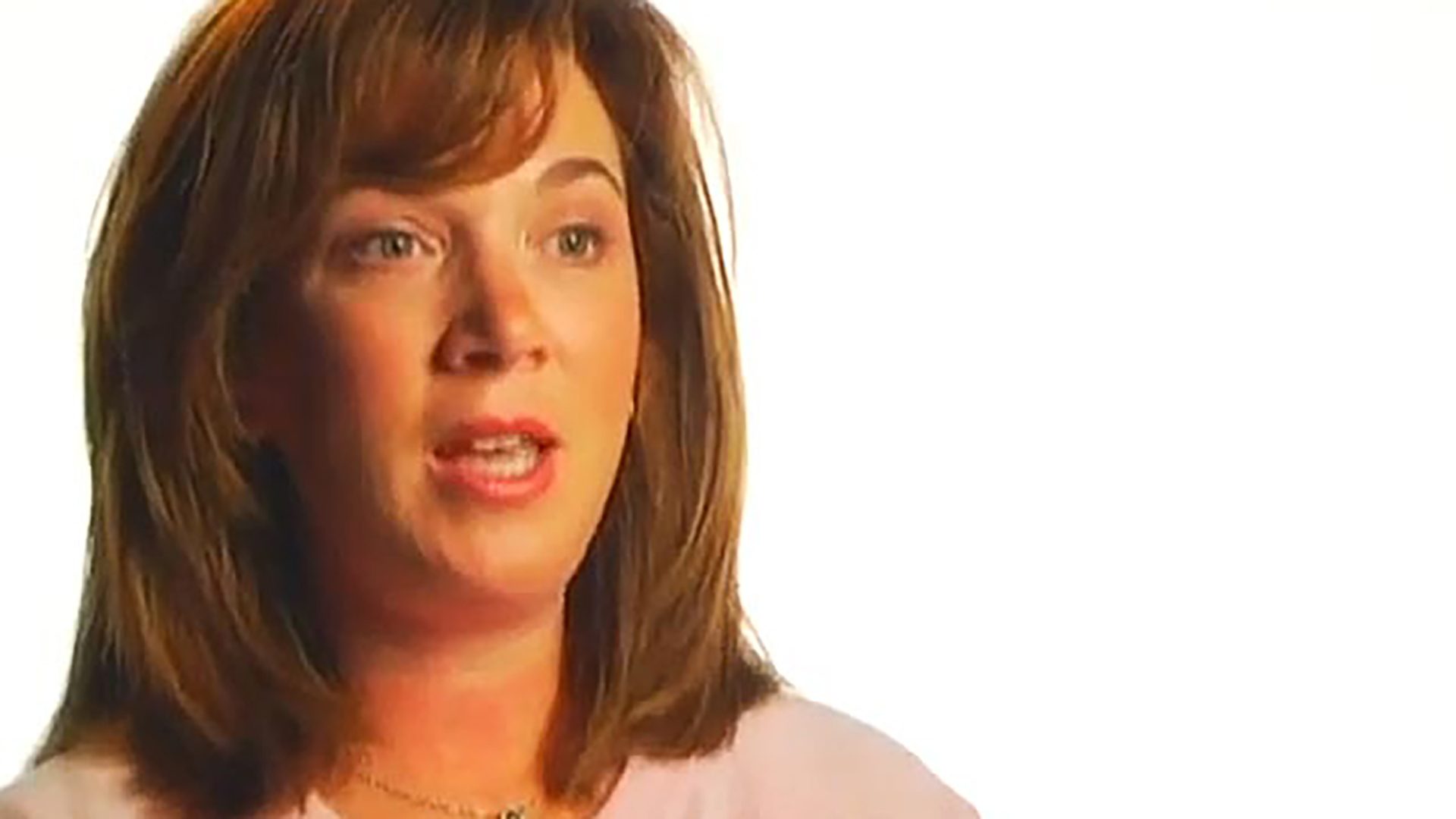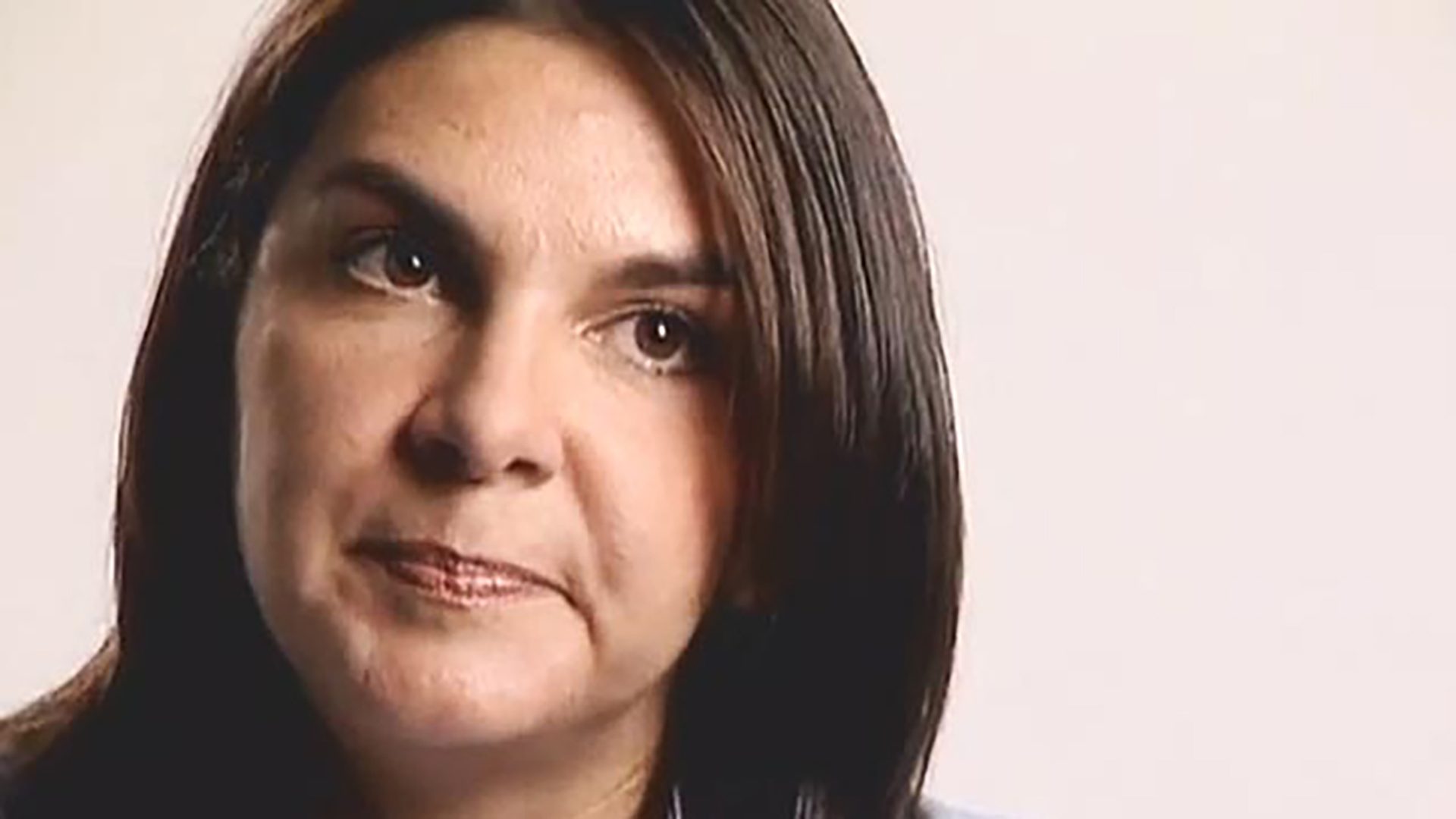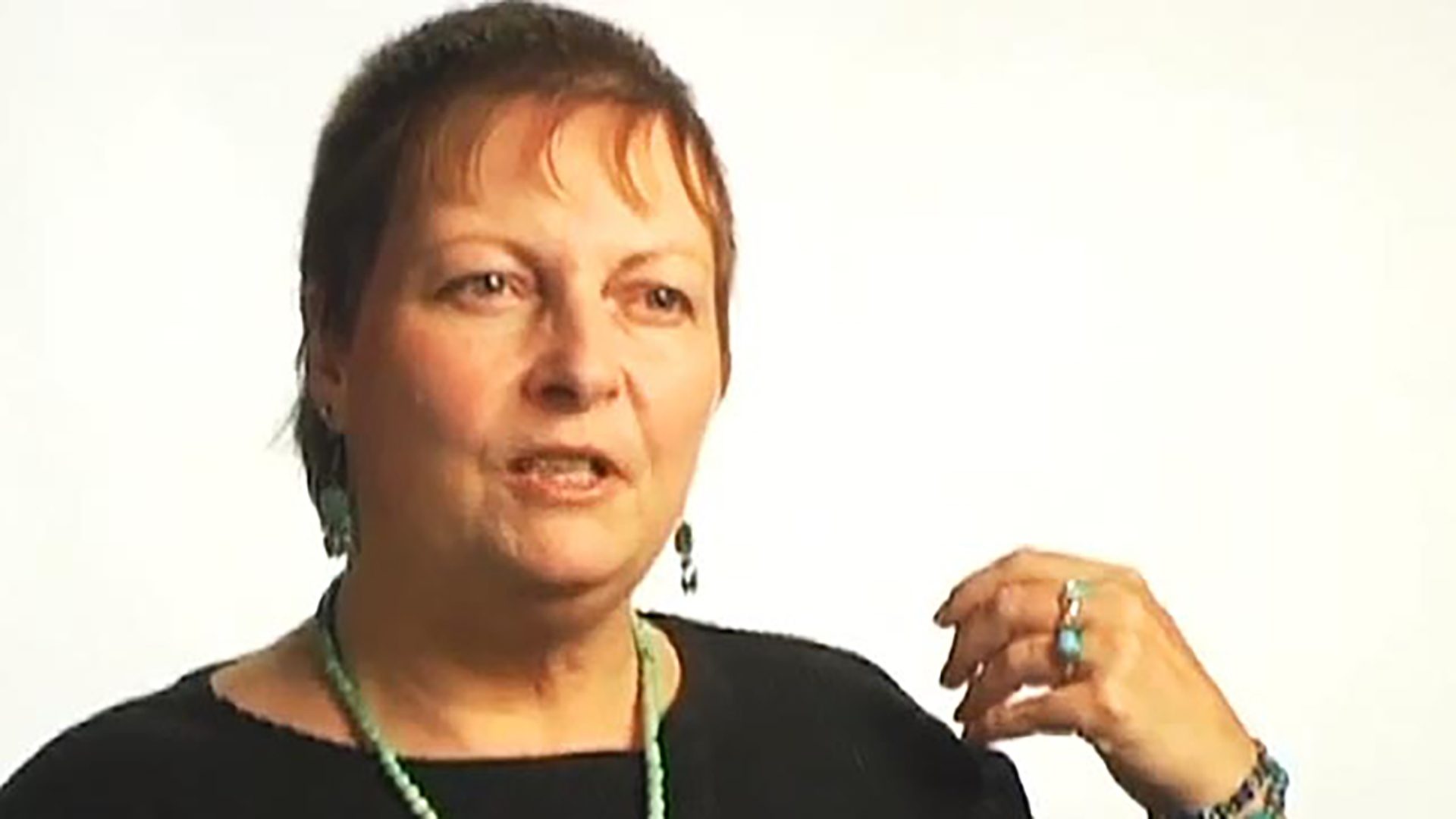Survivor Interview – Wendy Z.
Wendy is a melanoma survivor. She talks about using biological therapies for treatment, participating in a clinical trial, and new relationships after cancer.

I originally had a mole that was on my neck, and that was removed. At that time, it was a melanoma Stage 1, and I basically got a clean bill of health and everything was fine. Exactly one year later, I went completely numb on my left side. I discovered that I had a brain tumor and two tumors in my left lung. It all went back to it being melanoma. The cancer had spread systemically. It was in my blood stream. It was in my lymphatic system. When it metastasized, it planted itself in my brain and my lungs.
I did have to have actual surgery to get the tumors out of my lung. I also had X-knife radiation, which is a single beam of radiation to my brain to kill the tumor. I found one of the top melanoma specialists in Los Angeles and went into a very aggressive clinical trial treatment. I had additional treatment to get to anything that might be in my blood stream. I did bio chemo, which was five days of chemotherapy pills. I took a pill called Tamodar. That was followed up by twelve days of going to my doctor’s office and getting shots. I got injections of Interleukin-2, interferon, and GMC-SF, and that’s the biotherapy. They are all immune-boosting drugs. I had four cycles of those. Then I had a break. I went on to do the maintenance therapy, which I did for a year-and-a-half.
Quality of life during my treatment was a determining factor. The bio chemotherapy can be done as inpatient. It’s much more intense. You’re in the hospital for five days. You’re given two or three different types of chemo and the biotherapy. You lose your hair. You’re a lot sicker. You have a lot more of the typical reaction to a treatment. I reviewed all of these options and talked with the doctor. With the outpatient, he took into consideration my lifestyle and my needs. I work for myself. I run my own business from home. I needed to find a way that I could have two things happen: get better and maintain my life. He felt strongly enough and confident enough that the outpatient would work for me without compromising my quality of life.
Being in a clinical trial doesn’t mean that you’re going to be a guinea pig, and it doesn’t mean that you’re not going to get treatment. With melanoma, there’s no standard form of treatment. They have found that chemo on its own does not attack melanoma cancer cells. So the best advice that I got from talking to different doctors was to find an aggressive clinical trial and to go for it. I quickly learned that I wasn’t going to be a guinea pig and that I was going to get treatment. They want you to survive. They want to make you better. So I was given drugs that were FDA-approved. It’s all about the cocktail: the dosage, the timing, all of that. That’s what made up the clinical trial.
It was amazing! Because you are a part of a study, they want to know everything – every ache, every pain, every time something just doesn’t feel quite right. My doctors and nurses were so in tune. That’s what they’re there for. They want to learn. The good news is that every time I told them something, they had an answer. If I said I was feeling really achy, they’d say, “Well, take some Tylenol before you get this medicine.” If I said I was having sneezing attacks, which was just an odd side effect that I would have at times, they would give me a prescription for Claritin. You definitely are treated in such an incredible, caring way. Because just as much as they’re helping you, you’re helping them. Oncology nurses and doctors are a different breed of doctors than anybody you’ll ever meet in the medical profession.
One thing about my clinical trial which is different than many typical cancer treatments is that I didn’t have a lot of chemo, so I wasn’t experiencing the typical chemo side effects. My side effects were flu-like symptoms. I would get the chills and rigors, which is the shaking from a fever, and then I would run a fever. At times, I’ve run a fever as high as over 104. I could have a coughing or sneezing attack that would last 45 minutes, and then it’d be gone. Half the time, I didn’t even take the medication for the side effect because it didn’t last long enough. When I did the maintenance treatment, which was a follow-up to my treatment, I was hospitalized for 48 hours for this treatment. That was a little bit more intense, because I was getting a high dose of Interleukin-2, and that really caused the chills and rigors. But I slowly learned what it felt like and how to regulate it for myself. I learned my own little tricks.
My mom, who is also a cancer survivor, told me during the time that I was going through all of this, not to discuss it with my businesspeople, my clients, and to keep it just amongst my friends; therefore, not put anybody at risk of thinking that I would not be able to do my job. Now, two-and-a-half years later, they all know. I took phone calls from the treatment rooms, from my hospital bed. Physically, I didn’t have that typical cancer patient look. I was able to keep it my own business, and I feel my business was not affected. I was also very lucky, because at the beginning when I was going through the most intense part of my treatment, I had an assistant working with me. Courtney was just amazing. She was really there for me and could hold down the fort and keep it together when I needed to have some time to go for doctor appointments or just relax. Working at home obviously is a huge plus, because I could go into my room and lay down for a few minutes. If a phone call came in that was important, I would get myself up, muster up that extra little bit of energy and make it sound like everything’s just fine. So I was able to sail through all of it.
I did meet other patients. There were two other women that were exactly my age, in their 30s. One of them was single, who was Stage 3 when I first met her and then became Stage 4 and just could not fight the disease. She did not have a strong immune system. The other one was also in her 30s, a mother of three kids. She did the inpatient bio chemo. It was really, really hard when both of these women died. We were all touchstones for each other. We could talk about the side effects, and each of us could understand and encourage the other. I had many conversations with my friend Patty, who would say to me, “I just don’t know if I can do it anymore. I’m feeling so depressed.” I would try to get her spirits up and help her in any way that I could, because I was having success and I wanted her to have the same success. When it turned for the worse with her, it was really heartbreaking. A lot of people tried to encourage me to go into support groups, and I just felt that that was just too much. It was hard enough knowing people that had become my friends, and I just didn’t know that I could step into a support group and be that close to more people and take a chance of losing more people. I needed to surround myself with as many of my good friends and be a part of a survivor life, rather than dwell on a cancer patient life. I wanted to have that normal life.
It was a big concern when it came to dating again. Where do you go with telling somebody what you’ve been through? Even though I’m in complete remission and it’s been a year-and-a-half, it’s still a very personal and scary thing to tell somebody. You don’t know if their reaction is going to be, “That’s cool. I’m glad you’re all better. I want to date you anyway.” Or, “Glad you’re better, but I don’t think this is something I could ever handle. If you got sick again, that’s not something I want to deal with.” It does make it uneasy waters to dip your toes in at times, because you just don’t know. You also walk that line of, when do you tell somebody? If you’ve gone on two dates, do you tell them after that? If you think you like this person and you really think it’s going to turn into a relationship, do you tell them then immediately? You don’t want to go too far down the path and find out that they aren’t strong enough, and that this is not something that they’d be able to handle. So it definitely is a challenge. I have to believe that there are good people out there who can just say, “Hey, that’s your past. And you’re doing great.” I think I’m doing great.
Livestrong means really living every day. That doesn’t mean that every single day has to be filled with healthy eating, exercise and getting on my soap box to preach about the dangers of the sun. It’s just being able to be here and live every day and enjoy every moment. Sometimes every moment for me is a lazy Saturday morning lying in bed and watching horrible TV that I TiVoed, or it’s getting my butt out of bed and getting to my tennis game or yoga class. It’s just enjoying this gift that I’ve been given. My survivorship is a gift. I am lucky.
My name is Wendy Zocks, and I am a two-and-a-half-year melanoma survivor.

